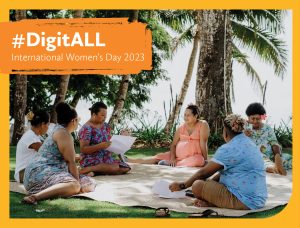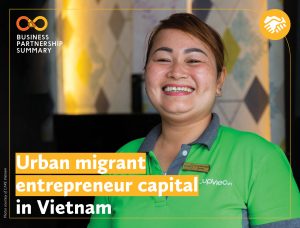Partnership Snapshot: Orchid Nurseries for Women Business Owners
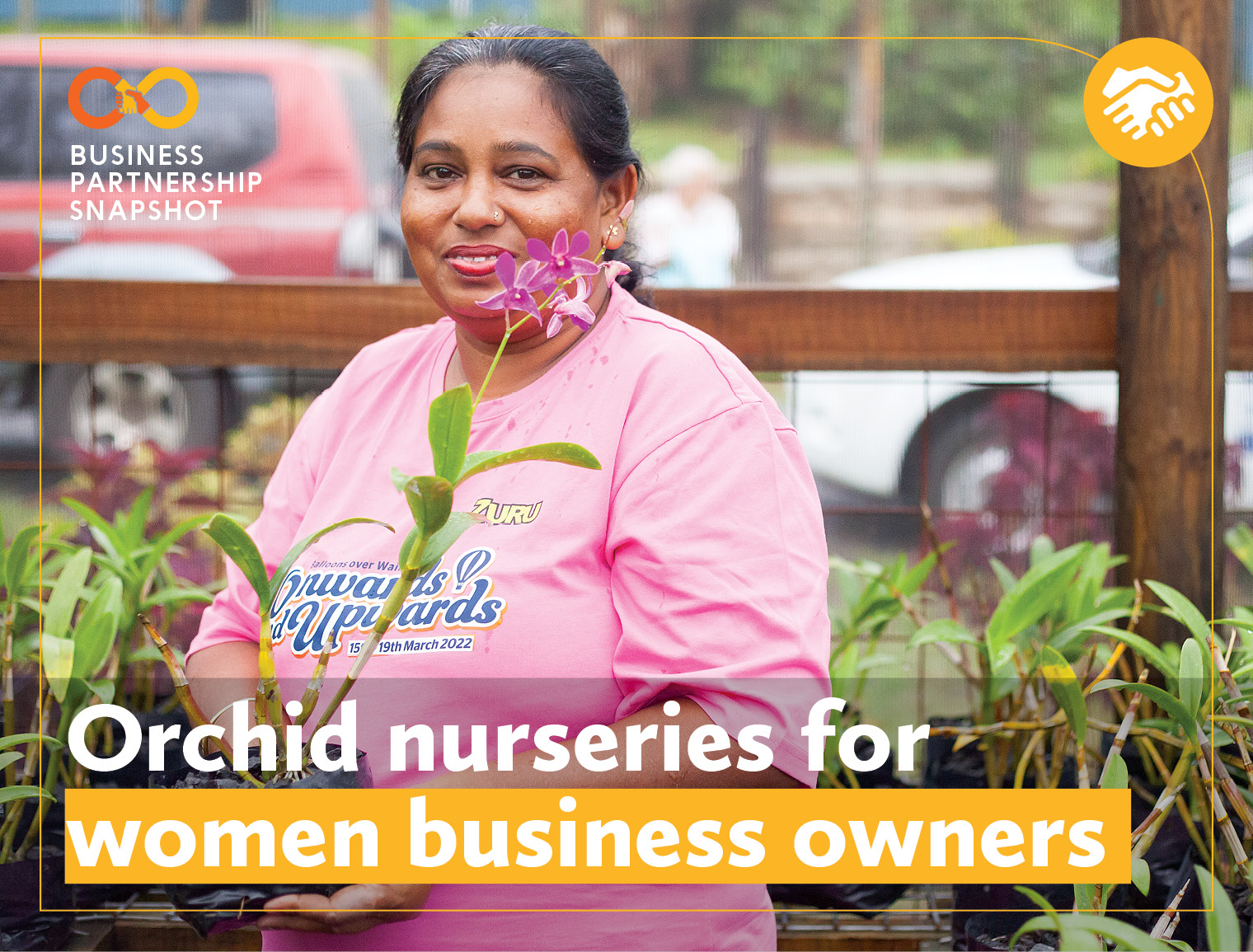
In Fiji, a BPP partnership with South Sea Orchids, Floriculture Support Association, Koroipita – Model Towns Charitable Trust, and the Australian Government has supported the establishment and upgrading of orchid nursery businesses for women living in Koroipita, a social housing community north of Nadi.
About the initiative:
The partnership aimed to increase the supply of quality cut orchids for the local market while providing an income-earning opportunity and building resilience and independence for women in Koroipita, many of whom are single mothers, survivors of gender-based violence or living with a disability. Many women in Koroipita have otherwise struggled to find work, particularly during COVID-19.
The partnership is a scale-up of 17 new orchid nursery businesses, from a pilot program of 17 nurseries that has running in Koroipita since 2008. The scale-up was developed in response to the ongoing success of the pilot program and a “flood” of requests from women at Koroipita to join the program.
The jobs are convenient and practical – particularly for single mothers and women with disability – as the growers can work right near their homes, involve their children and families if they choose, and only need to work for an hour or two per day.
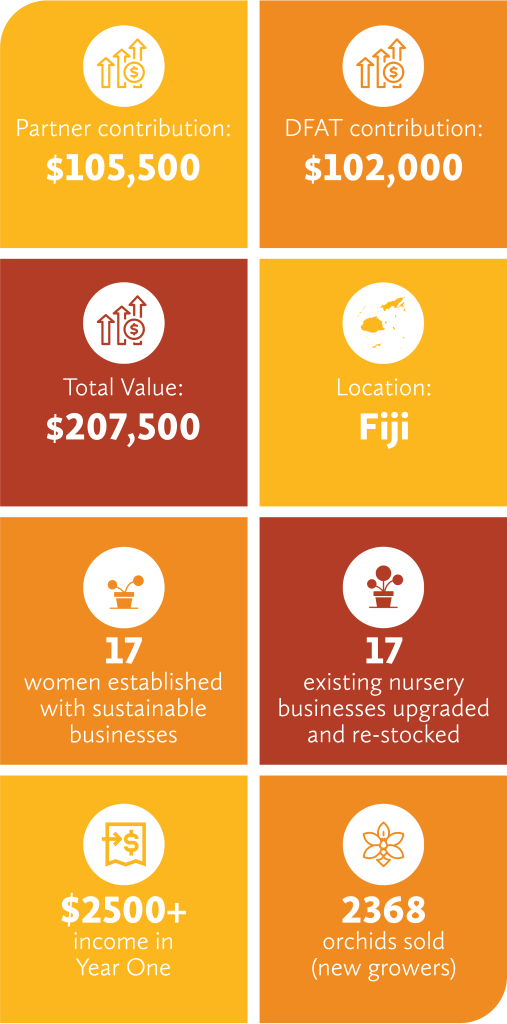
Partnership Highlights:
17 orchid business owners were trained to care for commercial plants and run a business
Training on caring for orchids was provided at the beginning of the initiative, while continuous learning and mentoring in business skills and best floriculture practice (such as techniques for repairing nursery infrastructure and monitoring crops for disease) were ongoing through the project. Furthermore, the technical skills obtained can be applied to growing almost any plant species and the business skills make it possible for the women to establish their own businesses in future.
“When they graduate [from Koroipita], they can go into their own business.” – Janet Fong, Enterprise Development Officer, Koroipita Model Towns Charitable Trust.
Business owners received an unexpected income during the first year of the program
It was not expected that the growers would earn an income in the first year of the project, as the plants were still in the establishment phase. However, the new growers earned up to $196 income in the first year – enough to cover several months’ rent at Koroipita. This unexpected early income was a morale boost and increased the motivation of the growers to continue to care for the plants.
“We were shocked, and we were thrilled, but it [gaining income earlier than expected] gave [the growers] a boost.” – Aileen Burness, Managing Director, South Sea Orchids
Business owners now have a sustainable source of income
Growers’ earnings will increase considerably as the plants grow and multiply. The existing plants will not need replacing for at least 8 years and, if the plants are well cared for, growers can expect to produce up to 10 sprays per year from each of their 300-plus plants. Once the plants reach full production, growers can expect to earn around FJ$12 per plant, and sales at a fair price are guaranteed by South Sea Orchids.
“The good thing is, they are earning money and if they continue with the fertilising program and fungiciding and everything, and if the plants get bigger, they can multiply the plants.” – Aileen Burness, Managing Director, South Sea Orchids
A Partnership Promoting Women’s Empowerment
Fostering place and community
For the orchid growers of Koroipita, being involved in the orchid nursery businesses offers much more than a new source of income. For some, the greenhouses offer a valuable space of their own, while for others they are places where they can work and spend time together with their families. Being a part of the growing community has also fostered a sense of kinship among the group – the group is supporting its members to make sure every greenhouse succeeds, while sharing tools, labour and knowledge.
Enabling entrepreneurship
The partnership not only developed the greenhouses as a sustainable source of income for the growers, it also provided training in business operations and basic business principles. The horticultural skills needed to grow the orchid plants are highly transferrable – if the growers leave Koroipita they now have the knowledge to establish their own business growing almost any type of commercial flower.
Offering incomes and independence
Caring for the orchids requires only a couple of hours work per day, and the businesses are convenient and practical – particularly for single mothers and women with disability – as the growers can work right near their homes and involve their families if they choose. Through the extra income the businesses provide, many of the growers report a greater level of financial stability and independence and the ability to exert some control over their finances.
“This project has brought the women into a level of some level of financial control and independence within the household, especially, enable them to pay the town fees to even put food on the table and also gave them a way of improving knowledge about what they’re doing with their lives – and has also driven them to become entrepreneurs.” Janet Fong, Enterprise Development Manager, Koroipita – Model Towns Charitable Trust.
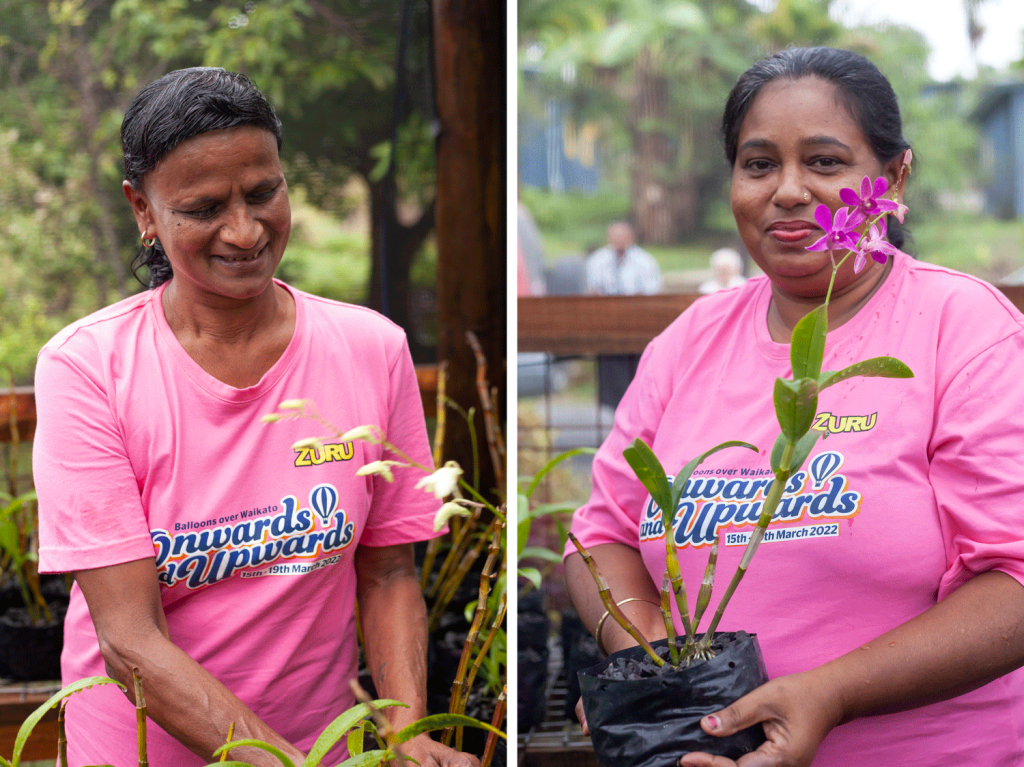
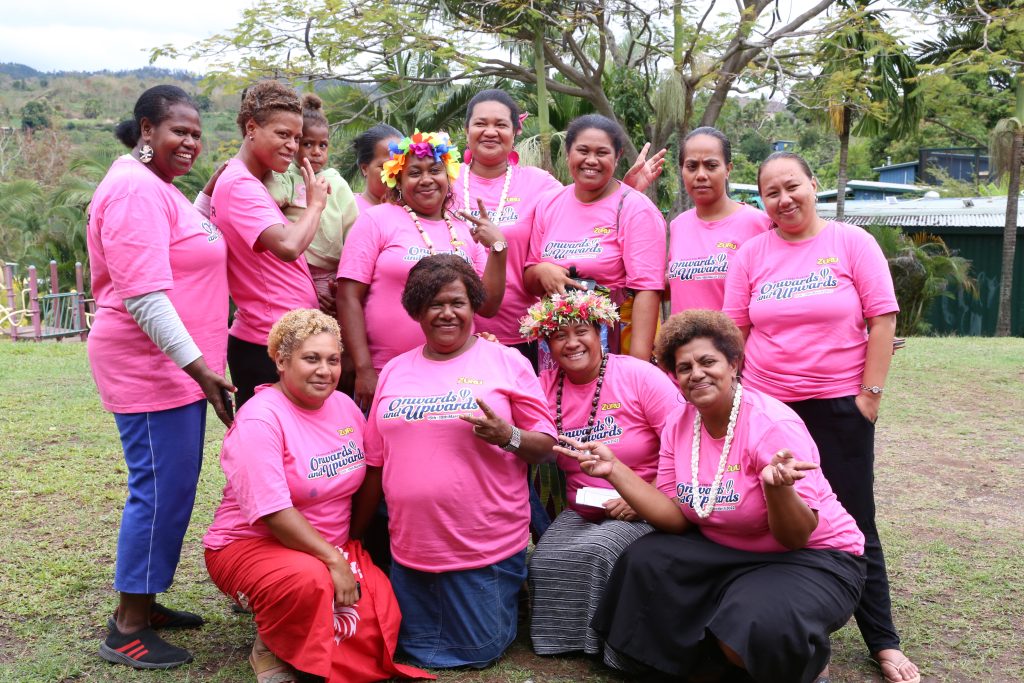
Grower’s stories
Suba’s story
Suba has lived in Koroipita with her husband for 6 years, and joined the orchid program in 2021.
Suba’s husband helps out with the orchid business and, between the two of them, Suba says, “it is not hard work. We clean the inside [of the greenhouse] and keep the flowers nice.”
Suba noted the value of the training provided at the beginning, adding that the growers were given books and a certificate upon completion and that they learnt about fertilizing, caring for the plants, and harvesting and sorting the flowers when they were ready for sale.
Suba’s’s greenhouse was one of the earliest of the new Koroipita greenhouses to produce flowers, in December 2021, and she has had flowers ready for harvest and sale every month since.
“We love them,” she says. “Something is coming in, money, and it is not a hard job. It is easy.”
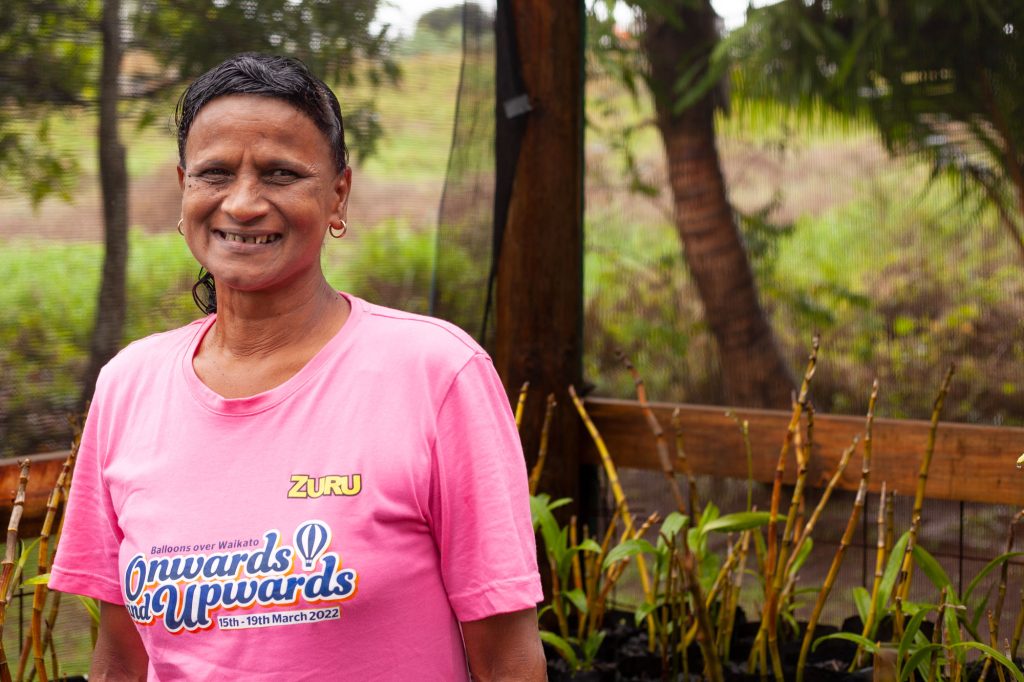
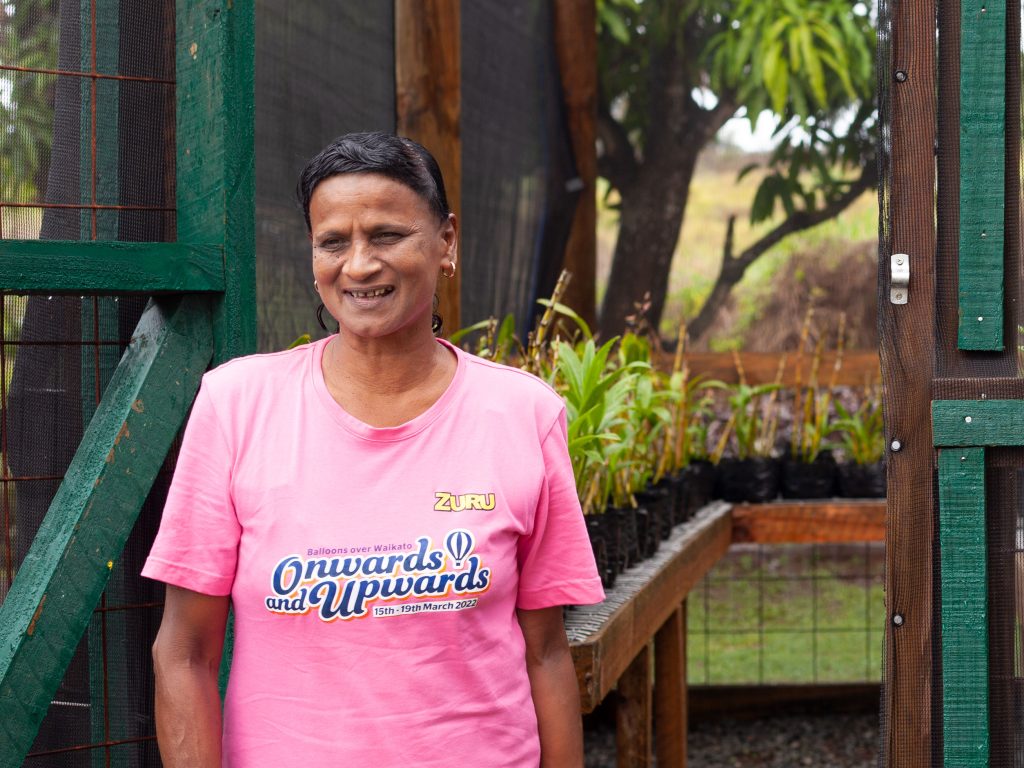
Anjini’s story
Anjini lives in Koroipita with her husband, while her two high-school age children are in Nadi with her brother. Her husband is unable to work due to an injury, and so the income she can earn from orchid growing makes a big difference to their family.
Anjini works with her neighbour to share the workload of looking after the two greenhouses so that the work fits in with their schedules. “We combine it, I work there and she works here. Everybody helps,” she says.
Not long after the planting, Anjini’s suffered an early set back, when the orchids in her greenhouse developed a blight problem. The training provided by South Sea Orchids at the start of the program meant that she was able to quickly identify the issue before it spread to other greenhouses, but her orchid stock was decimated. With the help of the partnership, her business is now back on track, and – like the other growers – she has earnt an unexpected income during her first year as a grower.
Anjini is looking forward to continuing to care for her plants in 2023, and seeing them produce more and more orchids for sale.
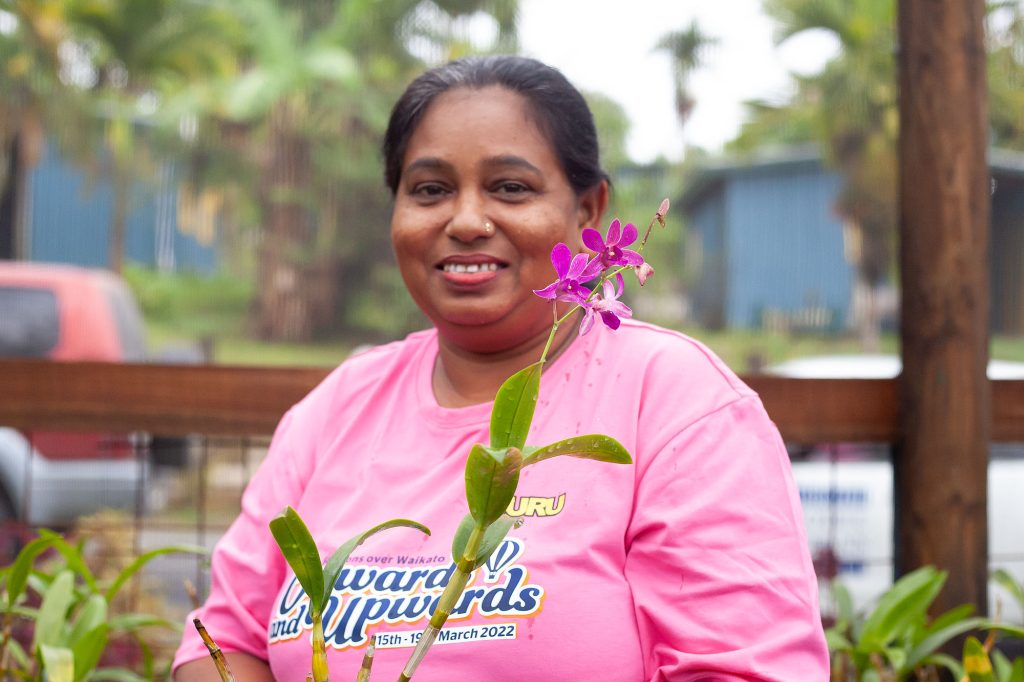
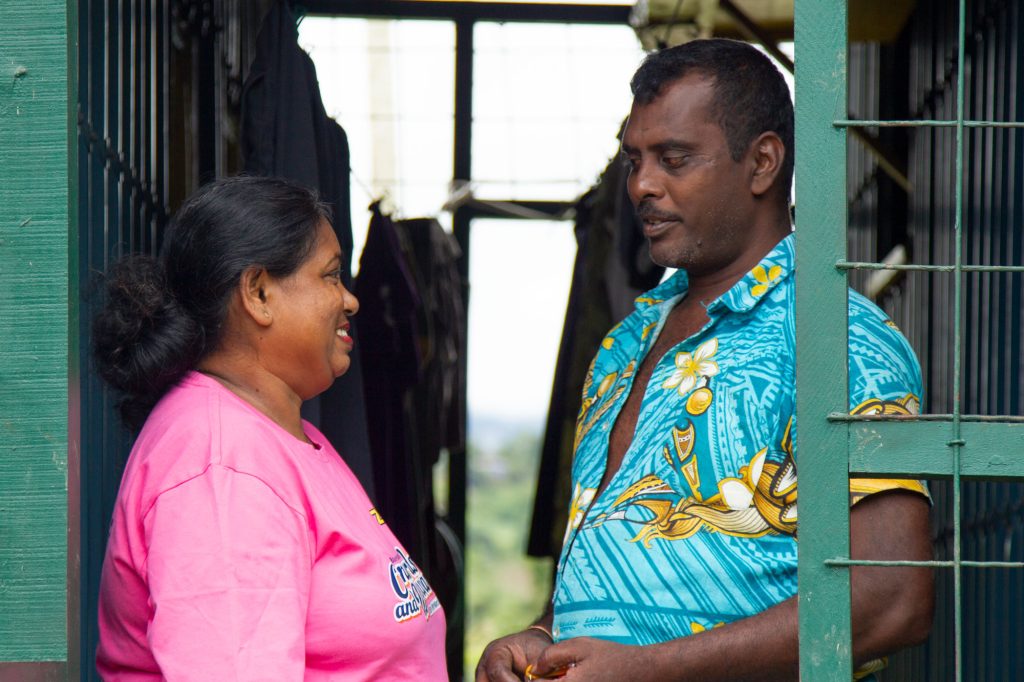
Aranuea’s story
Aranuea lives in Koroipita with her 4 children while her husband, a tiler, works on a resort on one of Fiji’s islands. For Aranuea, having the orchid business offers a valuable source of income for the family. The home-based business means she can be close by to her 4 boys, aged from 4 to 16, who she looks after by herself in Koroipita while her husband is away.
Aranuea says the training she received at the start of the project from South Sea Orchids was good, and they learned “about fertilising, about watering and all, and how to take good care of the orchids.”
Despite the partnership not expecting to harvest any flowers during the first year – meaning the growers were not expecting an immediate income – the greenhouses have already started producing.
At Aranuea’s most recent harvest, she sold 8 flowers of different sizes, and the nursery has already started bringing in some important additional income for the family, that is helping to pay the rent at Koroipita village.
When the flowers are at their full potential, they could produce up to 10 sprays per plant per year, and each greenhouse has a stock of just over 300 plants.
As well as the income, Aranuea enjoys the work. She finds the processing of the flowers – including the care, harvesting, and grading of the flower sizes – mostly easy, and knows she has the support of the team at South Sea Orchids if she has any problems.
“I earn from it,” she says “And I just love it.”
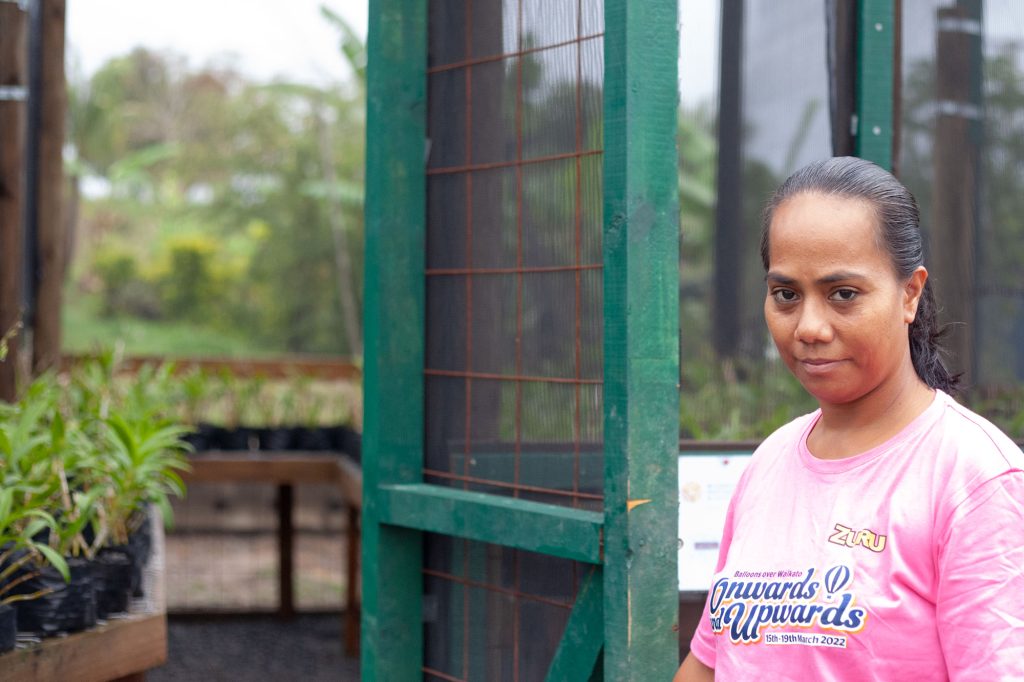
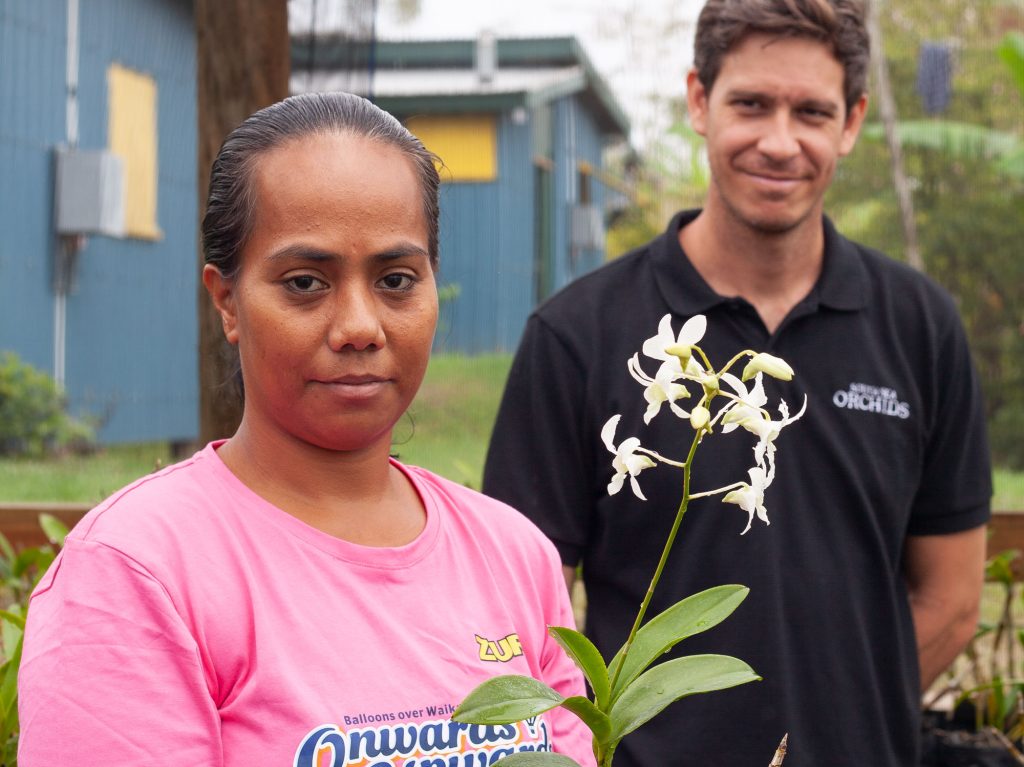
Key contributions from partners
The partnership was built on an existing relationship between South Sea Orchids, Floriculture Support Association and Koroipita Model Towns Charitable Trust. This relationship has been deepened through their involvement with the BPP and each partner played a critical role to the success of the project.
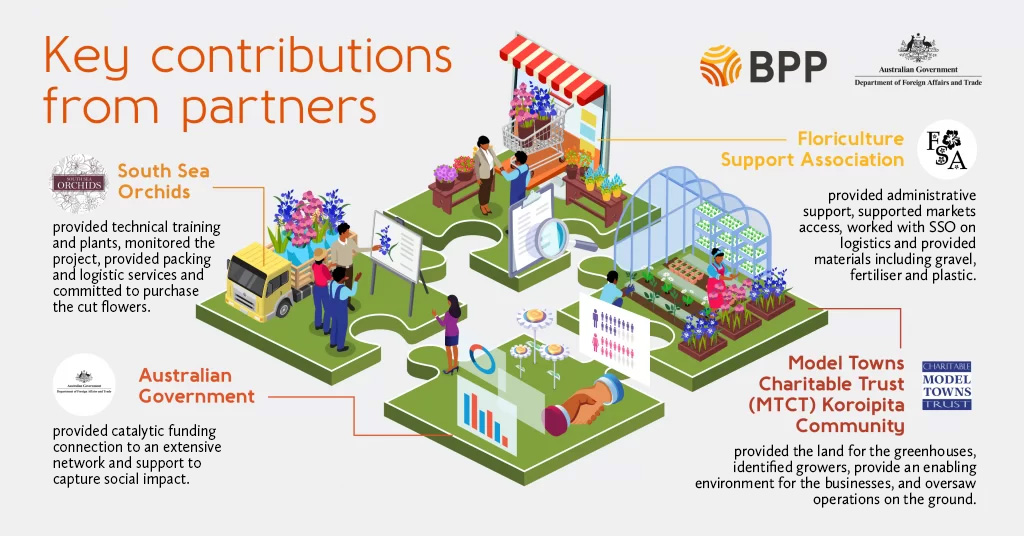
What’s Next?
As the women’s plants continue to grow and increase their production, they will continue to receive support from South Sea Orchids and Koroipita Model Towns Charitable Trust. The Koroipita greenhouse provide an important additional supply of cut flowers to South Sea Orchids, who will continue to provide technical assistance and support when needed and continue their guarantee to buy the orchids at a fair market price, while Koroipita will continue to support the growers on the ground.

